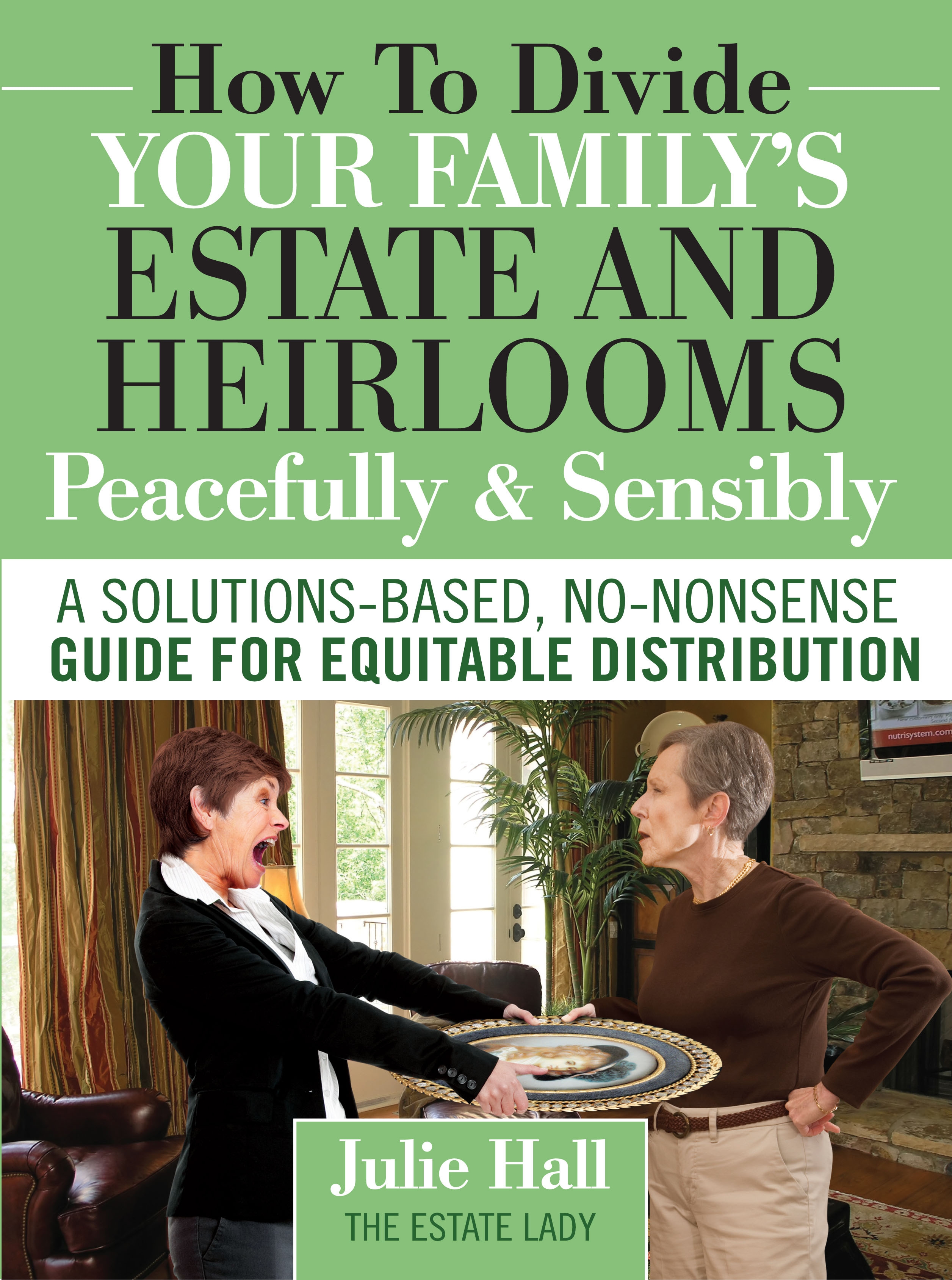Most of us enjoy hearing those words during a wedding ceremony, where the new couple is floating in bliss and envision being by each other’s side until death separates them. From my perspective, however, I see people who have a very passionate relationship with their material possessions, sometimes more so than each other! If I didn’t know better, I would say they behave as if they can take their possessions with them when they leave this earth, but we know that we can’t take stuff with us.
I have seen it all. In all those years of estate work, I have tried to figure out why people have such a hard time “letting go.” Often, the Depression Era generation is the one that has accumulated the most, in my experience. Their parents did not have much and probably possessed more utilitarian items because of the era in which they lived. When their parents passed away, they did not distribute or sell those items … they absorbed them. The boomers have multiple generations of stuff to deal with when their Depression Era parents pass away.
Here are a few thoughts on why people hold on to so much:
- You just never know when I’m going to need this.
- There are so many things I could use this for.
- If I hold onto it long enough, it will become valuable.
- It is already old, so it must be valuable.
- I did without as a child and I will not do without again.
- It was a gift and I will honor the giver by keeping it.
- The more I leave the kids, the more they will have.
- I worked very hard for these things and I will pass them down.
- They bring comfort and familiarity.
- Sentimental reasons.
- Too overwhelmed to let it go — emotional attachment.
- I’ll let my kids deal with this after I’m gone.
As an appraiser of residential contents, this is the part where I try to put my clients at ease. When in doubt, always have the contents of an estate appraised prior to distributing or selling contents. Most times, the heirs are not surprised to learn that much of what mom and dad amassed doesn’t have much value. Some children feel that items might be “junk” and some pieces do turn out to have significant value, pleasantly surprising them. Family stories through the years can add to the anticipation that great-grandfather’s chair is more valuable because it is so old, but age is not the only factor of value. There are many more characteristics of value we look at to determine it’s worth.
Another important issue that the older generation should realize is that many of their heirs already have houses that are full of accumulation from 25+ years of marriage. Adding more stuff will only fuel marital strife. I’ve seen divorces happen over keeping too much stuff.
Some kids keep items to sell, others for sentimental reasons. others because they feel guilt because “mother would kill me if I didn’t keep this.” The younger generation appear to want nothing but cash assets. Even if your children do take a few items, their children definitely don’t want them now, and most likely will feel the same in the future. They are not interested in antiques or traditional possessions when they could take the cash and go to IKEA or Pottery Barn. This is the trend.
Holding on to possessions because you don’t want to let them go will leave a massive burden on your children. Gifting now and making plans for the distribution of your possessions while you are still here (and in control of those decisions) is the best plan of action. Take it from one who knows!
©2013 The Estate Lady®
Julie Hall, The Estate Lady®, is the foremost national expert on personal property in estates, including liquidating, advising, and appraising. http://www.TheEstateLady.com She is also the Director of American Society of Estate Liquidators®, the national educational and resource organization for estate liquidation. http://www.aselonline.com



